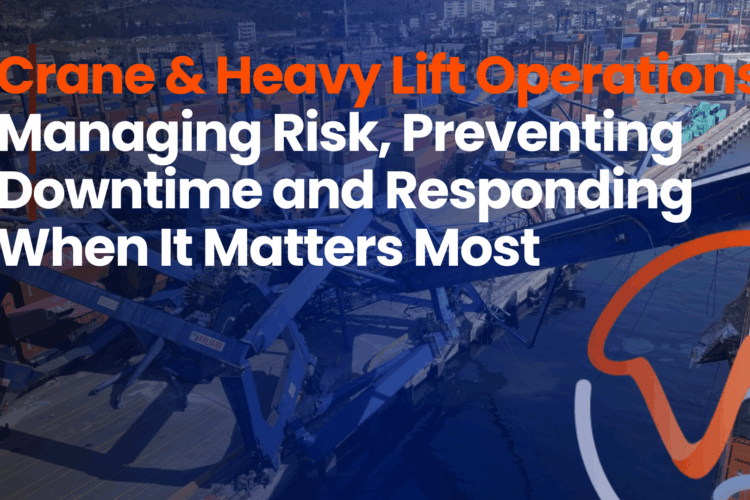
Navigating Alternative Fuels - Biofuels: Best Practices for Storage, Handling, and Safety
As the maritime industry moves towards a more sustainable future, the urgent demand for diverse alternative fuel energy solutions has emerged as a critical driver to decarbonise and reduce its GHG environmental footprint. Currently, among the widely discussed options for alternative fuels sources are biofuels, liquefied natural gas, methanol, ammonia, and hydrogen. Each of these alternatives presents unique opportunities and challenges, especially concerning storage, handling, bunkering, safety, and emergency response. In this article, we will provide practical advice focusing on biofuels, specifically Fatty Acid Methyl Esters (FAME) and Hydrogenated Vegetable Oil (HVO).
Biofuels offer several benefits, including compatibility with many engines and requiring minimal modifications. They are also readily available and are competitively priced.
Fatty Acid Methyl Esters (FAME)
FAME, a form of biodiesel made from renewable fats, oils, and greases, is commonly blended with diesel. It’s essential to note that storage and use of FAME present unique challenges:
Storage: Precautions include avoiding long storage durations, implementing fuel condition monitoring programs, draining storage tanks regularly, maintaining the fuel temperature above the pour point, and storing it in clean tanks to prevent deposits.
Bunkering: FAME follows the same bunkering framework as diesel fuels, but care must be taken to prevent mixing with non-compatible fuels during supply.
Handling: When using FAME in higher concentrations, it’s critical to ensure engine compatibility and adequate supply. FAME is lower in calorific value compared to petroleum-based fuel, and verifying with the engine manufacturer that NOx compliance remains intact under operational conditions is important. Additionally, caution must be taken as FAME fuel blends have the potential to harm materials such as Teflon, Viton, fluorinated plastics, and nylon, which could lead to fuel system contamination and corrosion. Operators must therefore ensure that both the fuel system and any tank coatings are resilient to the solubility of the blend used. Regular maintenance procedures, such as inspecting, changing, or cleaning fuel filters as needed, draining water from fuel tanks, and preventing water ingress, are also imperative. Furthermore, it’s advised to flush the fuel system during periods of inactivity and conduct additional fuel filter services based on the blend percentage and feedstock utilised. These precautions are paramount to optimise the performance and longevity of engines running on FAME blends.
Safety: While FAME is generally safe, precautions are necessary. Heating FAME can release vapours that may irritate mucous membranes, causing symptoms like dizziness, eye irritation, and nausea. Prolonged skin contact isn’t known to cause significant irritation; however, it is advisable to implement safety measures when handling FAME and other diesel blends. Personal protective equipment (PPE) should be worn, and any exposed skin should be washed with soapy water. Staff must be properly trained on safe handling and informed on the appropriate protective gear before working with FAME and biodiesel blends.
Hydrogenated Vegetable Oil (HVO)
HVO serves as a direct replacement for fossil fuel, requiring no engine modifications.
Storage: HVO is stored like other HFOs (diesel) but offers many advantages such as a long storage life of up to 10 years, reduced risk of oxidation, due to the removal of oxygen during the hydronated process and resistance to water absorption reducing the risk of bacterial growth. Best practices for HVO include maintaining storage temperature above -32°C and regular dewatering of tanks.
Handling and Bunkering: Like diesel fuel, handling, bunkering protocols align with standard practices for hydrocarbon-based fuels.
Safety: HVO, like FAME and other diesel fuel blends, demands safeguards against inhalation, skin, and eye contact. Precautions and equipment for storing and handling HVO and diesel blends mirror those for traditional diesel fuels. Always wear PPE for protection and promptly wash any exposed skin with soapy water. Staff training is imperative on the guidance and safe handling, and associated procedures before commencing work with HVO.
Fire and Emergency Response: As with any flammable fuels, personnel should approach a FAME, HVO or diesel blend fires with caution, using firefighting techniques similar to those for conventional diesel fuel fires. Suitable extinguishing equipment includes dry chemical foam, carbon dioxide, and water spray (fog). Avoid using a direct water jet when fighting both HVO and FAME fires.
While biofuels like FAME and HVO offer promising alternatives for reducing emissions in the maritime industry, careful consideration of storage, handling, and safety practices is crucial. By following best practices and staying informed about safety guidelines, the industry can navigate the transition to alternative fuels effectively, contributing to a more sustainable future.
At Waves Group, we’re committed to providing comprehensive guidance and support for navigating the complexities of maritime operations in an evolving industry landscape. Our Marine Engineers have years of experience working with oil majors and are members of various industry bodies such as SIGTTO, SGMF and UK Chamber of Shipping. They are equipped in the handling of various alternative fuel types and can offer operational guidance on their use, risks and hazards. Should there be a fire or marine incident, we have an in-house fire and HAZMAT expert supported by our three SCRs and casualty response team to assist in the investigation and remediation of major casualties.
Waves Group have partnered with the Britannia P&I Club to publish a series on alternative fuels, click this link for further information.
For more information or to assist with any bunkering or any fuel issues, please contact our lead Marine Engineer Kenneth English on [email protected] or telephone our 24-hour emergency response number +44 (0) 20 7083 7266.









